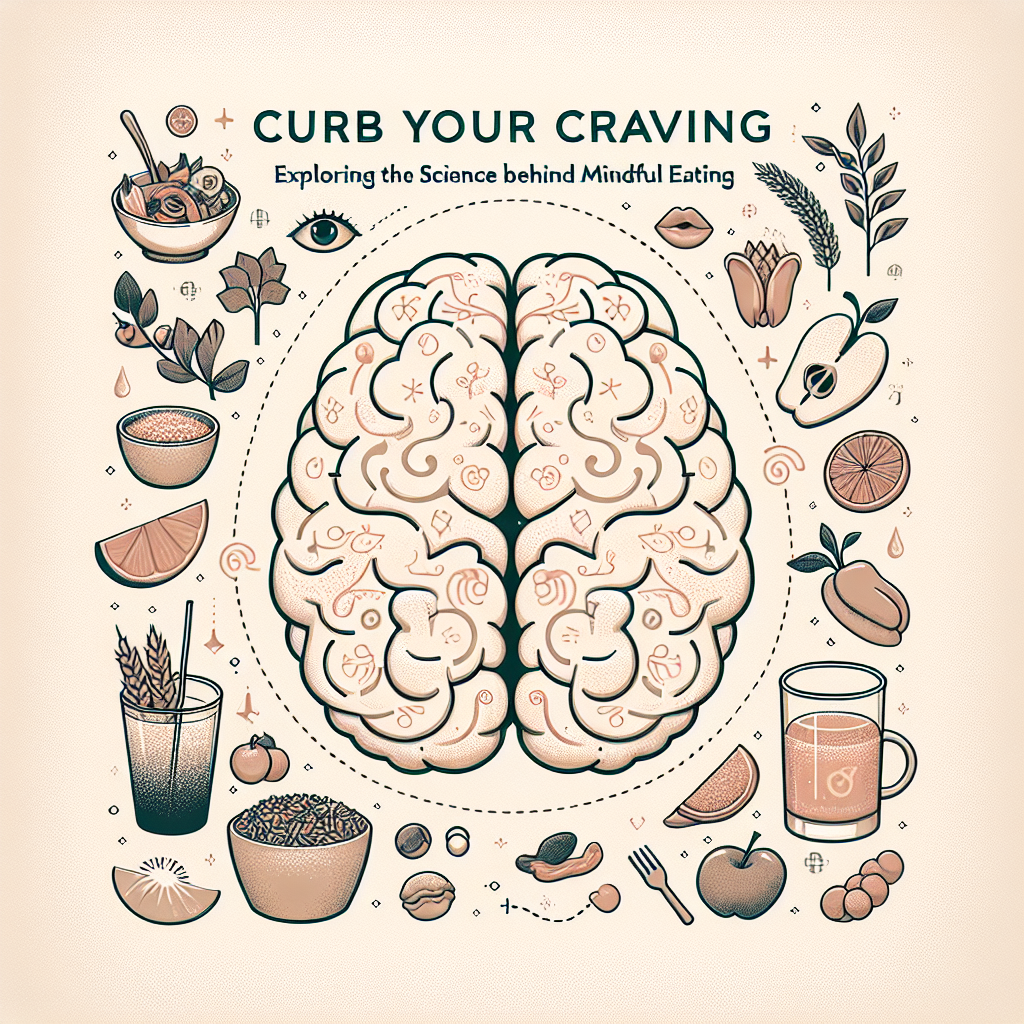### Curb Your Cravings: Exploring the Science Behind Mindful Eating
*Content Warning: This article will discuss eating habits and diets*
We’re constantly confronted with an abundance of food choices every day, making it challenging to maintain a balanced diet. Especially in today’s age of snacking and fast food culture, we might find it hard to stay mindful of our eating habits. In this blog post, we’re going to explore the science behind mindful eating, a trending and beneficial way to curb cravings and improve overall health.
Mindful eating – originating from Buddhist teachings – is not a diet plan. Instead, this approach emphasises paying full attention to the experience of eating and drinking, both inside and outside the body. It revolves around noticing smells, colors, flavors, textures, and the sounds when we chew our food, as well as any physical or emotional responses that occur while eating.
So, why is mindful eating trending? And what scientific basis backs up its benefits? Let’s dive into it!
**Why should you consider mindful eating?**
Recent scientific studies tout mindful eating as an effective way to lose weight, reduce binge eating, and help you feel better. When practiced correctly, mindful eating can help address several issues, such as overeating, food addiction, and emotional eating.
A 2018 study by the Journal of Clinical Endocrinology and Metabolism discovered that people could burn up to 10% more calories when they eat a large meal four hours before sleep. This finding is tied to the body’s circadian rhythm and further shows the importance of not just what you eat, but when and how you eat.
**Scientific basis behind the benefits of mindful eating**
Many of these advantages stem from how mindful eating helps change the way our brains view food. Eating without distraction allows the brain to focus entirely on the experience of eating and the unleashing of satisfaction signals. In a study published by the American Dietetic Association, it showed that a slower, more thoughtful way of eating could help with weight problems and steer some people away from processed food and other less-healthful choices.
Mindful eating also has positive effects on mental health. In 2020, a randomized controlled trial by the Cambridge University Press demonstrated that even brief periods of mindful eating practice led to significant improvements in anxiety, depression, perceived stress, and self-compassion.
**Cultivating a practice of mindful eating**
Adopting the habit of mindful eating does not require a drastic lifestyle change. It’s as simple as taking a few seconds before a meal to appreciate the look and smell of your food, or giving your undivided attention to every bite, savouring every flavour and texture.
Moreover, make an effort to eat in a relaxed environment, away from digital distractions. Notice when and why you experience cravings. Is it because you’re genuinely hungry or is it tied to your emotions?
With the growing body of evidence supporting mindful eating, no wonder it’s a trending topic in health and wellness. It’s a straightforward, scientifically-backed method that can significantly improve your physical and mental health. As we navigate through our busy lives, let us slow down and savour our meals, one bite at a time.
In conclusion, mindful eating is an intuitive way of consuming your food – one that can aid your digestion, reduce overeating, promote enjoyment of food, and may even aid symptoms of depression and anxiety. Now that’s something worthwhile to digest.
**References:**
1. Van Dyke, N., & Drinkwater, E.J.(2014). Relationships between intuitive eating and health indicators: Literature review, Public Health Nutrition, 17(8), 1757-1766.
2. Warren, J. M., Smith, N., & Ashwell, M. (2017). A structured literature review on the role of mindfulness, mindful eating and intuitive eating in changing eating behaviours: effectiveness and associated potential mechanisms. Nutrition Research Reviews, 30(2), 272–283.


